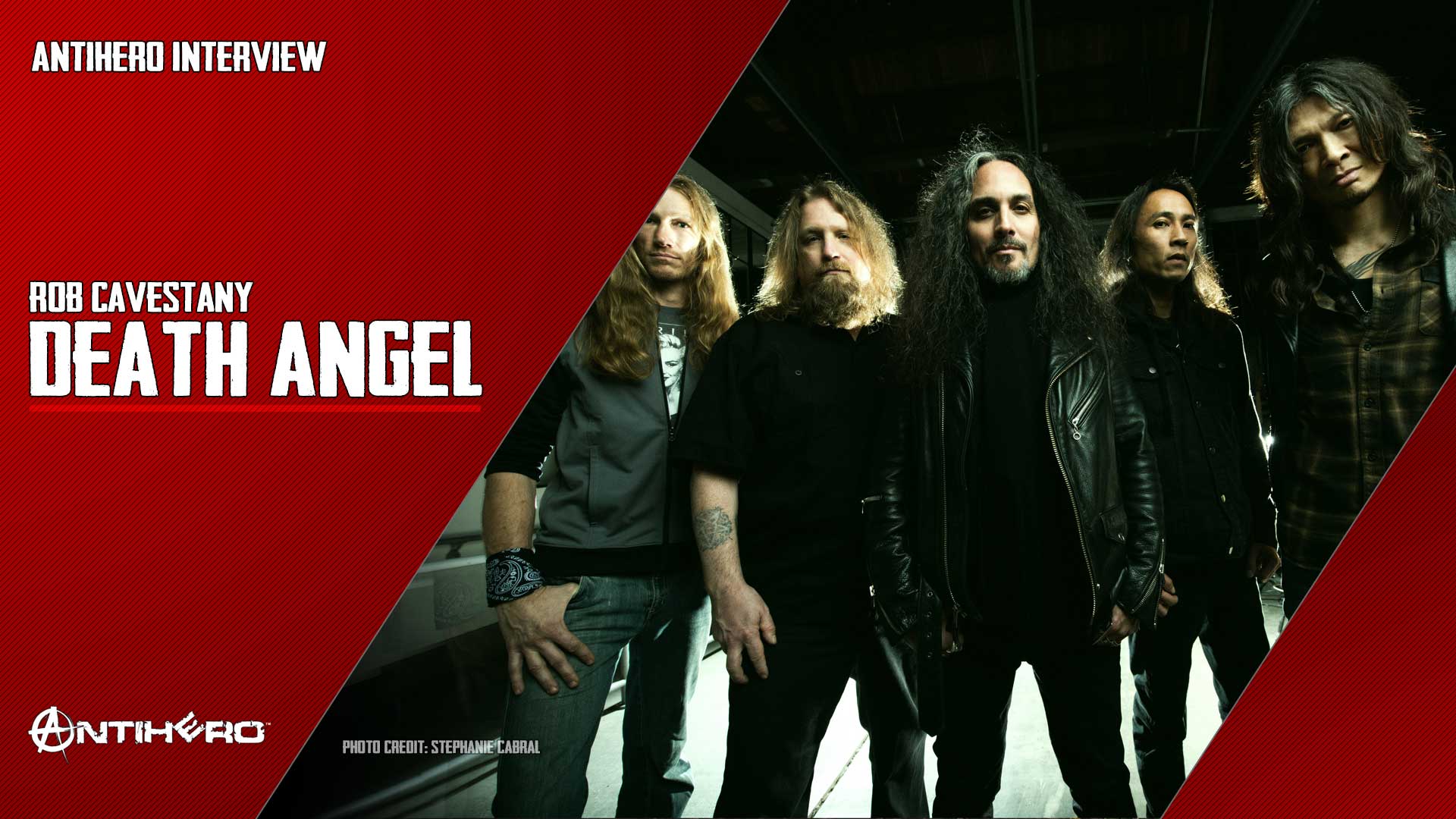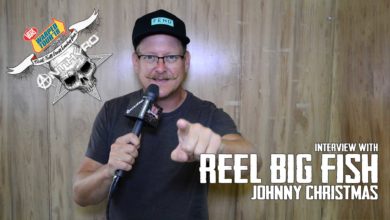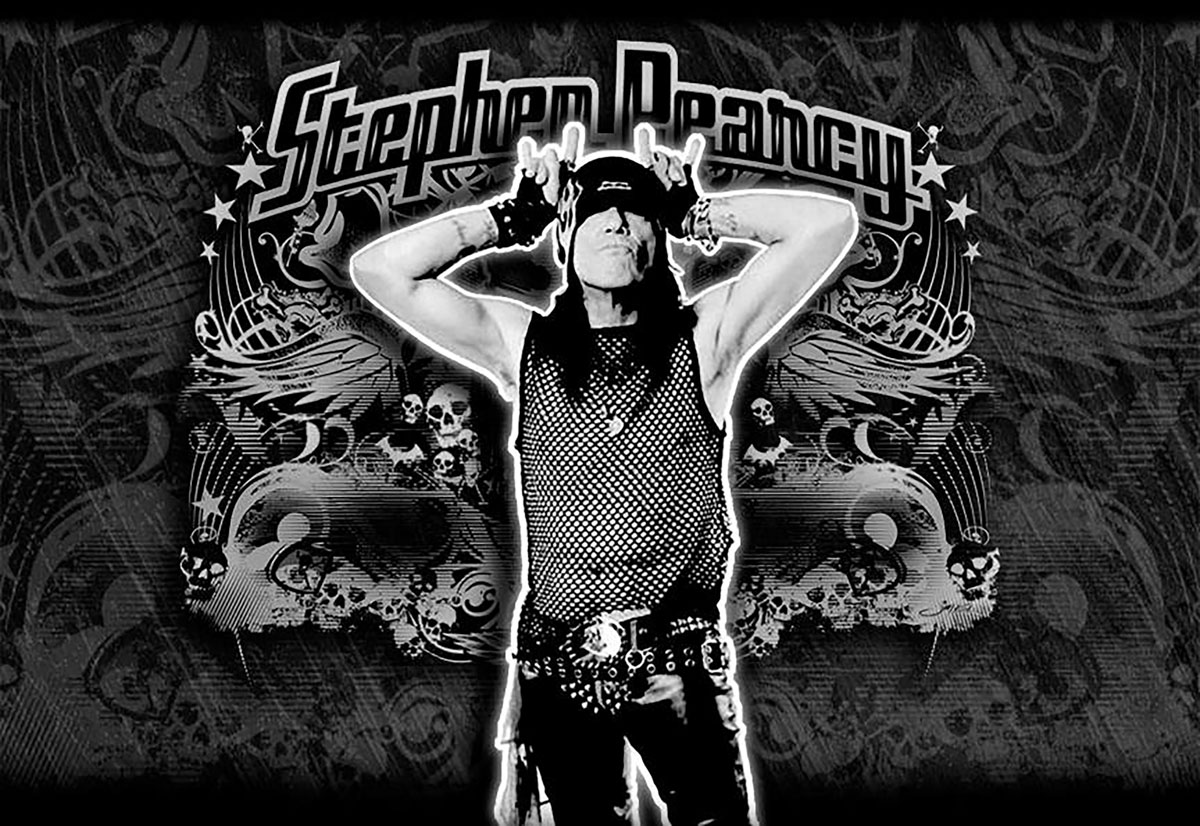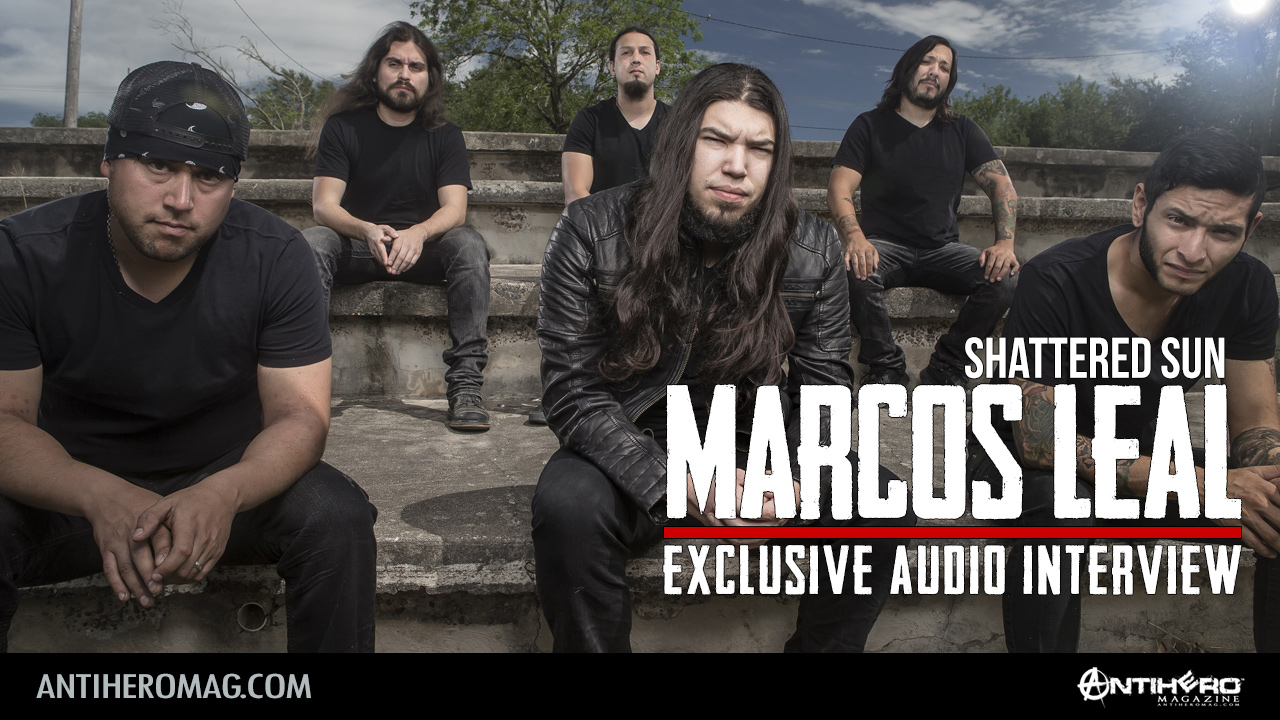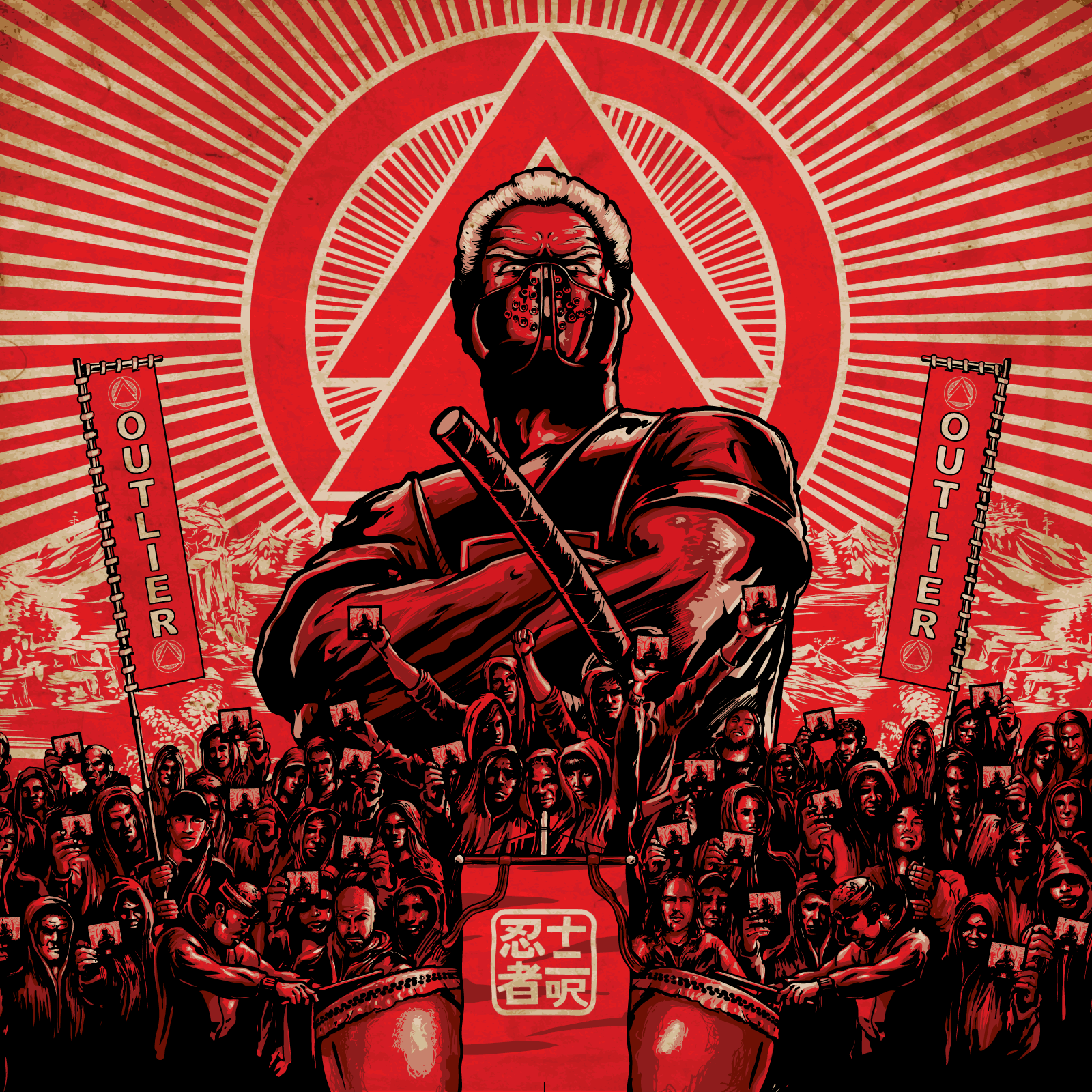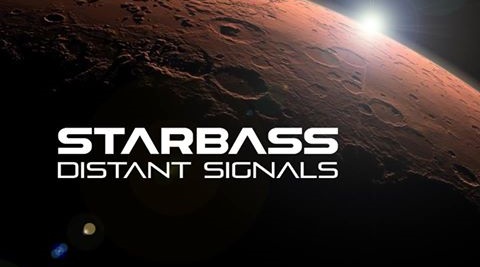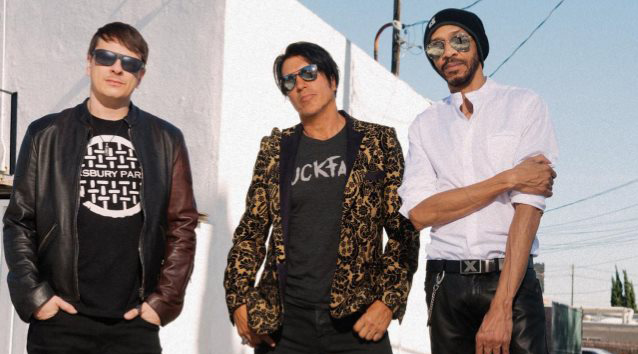Growing up in the eighties Death Angel were one of my first introductions to the musical genre of Thrash Metal with their debut release, The Ultra Violence. Fast forward almost a lifetime and the band will release their long-awaited 9th full-length album, Humanicide, on May 31st with Nuclear Blast Records. That release will be preceded by DEATH ANGEL’s U.S. tour with OVERKILL and ACT OF DEFIANCE.
For the 4th album cycle in a row, DEATH ANGEL returned to their producer and friend Jason Suecof (DEICIDE, TRIVIUM) of Audiohammer studios for the recording and mixing, along with the mastering of the legendary Ted Jensen (SLIPKNOT, PANTERA) of Sterling Sound who added the final touches and brought it all to life, with artist Brent Elliott White (LAMB OF GOD, MEGADETH) providing the ominous cover artwork.
“I’m ecstatic to present Death Angel’s 9th studio album, Humanicide. This collection of songs represents the band in its current state – united, vital, intense and (still) hungry like the wolf! I wanted this record to be quite diverse stylistically while obviously keeping with the parameters of metal. DA has been known to push the envelope and we absolutely did this time. So many emotions expressed through our music, very much looking forward to adding these songs into our live set list. As I savor this rare feeling of satisfaction, we proudly unleash this beast upon thee!” – Rob Cavestany
Just prior to the albums official release I managed to converse about its creation and also discussed the longevity and legendary status of Death Angel as a band – while frolicking through the Park with band mainstay, guitarist Rob Cavestany.
ANTIHERO: Death Angel as a band have been around quite some time. I just wonder how you can explain their enduring appeal?
Rob Cavestany: How I can explain that we’re still around? We don’t know the meaning of the word quit. We don’t give up. We’re fucking obsessed. We’re obsessed with music and we love it. I mean, that’s really the core of it. I mean, there’s been multiple times where we’ve been beaten down to the point that we should have stayed dead on the ground, but I mean, in the end, me and Mark, we just, we’re on a mission and we’re not at the end of the story. So, we just love it. We love music, plain and simple. We love the energy from the crowds playing live. We love touring and traveling and meeting people and sharing energy through music, and we live for it.
ANTIHERO: Why did it take 10 years before a Death Angel reunion?
Rob Cavestany: Oh, because it was not our intention. We weren’t trying to reunite. We had no plans of reuniting. We did not want to open up that can of worms again. We were already over it and we weren’t really … you know, it just wasn’t even in our plans. So that’s why. And the only reason we got back together again was to perform … to do a favor for a good cause for Chuck Billy and … Chuck from Death’s benefit show.
ANTIHERO: How would the band chemistry have changed for you since the first few albums when it was quite literally a family?
Rob Cavestany: It evolved and changed a lot throughout the years. That’s definitely something that happens over a long course of time. Just like any other relationship, it goes through stages of evolutions of good and bad. And so, of course, in the very beginning, we’re totally excited, we’re very very young, we’re just kids really, and so, our relationship was extremely tight as best friends of kids would be. And then, you know, through time you’re growing into yourself.
ANTIHERO: Sure, I understand.
Rob Cavestany: And your own individual life and the thing becomes more of a job or partially it’s an obligation and at that young age it’s hard to comprehend what’s actually going on, with so much work when you’re still just a teenager. So, you know, after a while you experience tension and the relationships get deeper but yet complicated. Then fast forward many years later and we reunited at that point of time and so, the relationship got a bit exciting again, because we kind of were apart for over a decade, so we had a lot of space from each other and it became very, you know, like reuniting with old friends kind of thing. And then, after getting used to it again and working and working, and a couple of albums later and years, then, you know, people’s individual personal lives start to become more important than the relationship of the band, of course. As they say, “The honeymoon is over.” So, you know, the initial excitement runs its course and then you have to deal with reality and reality set its course, and so, a couple of the original members had to leave the band. And then, now, for the last 10 years, we’ve had this lineup the same in the last four records. And I’m happy to say our relationship has now developed into an extremely strong relationship once again.
ANTIHERO: Yeah. And of course, you have a new album coming out. Has the recording process for you guys changed that much since those first early releases?
Rob Cavestany: Absolutely. Like, I mean, completely. For instance, in our debut release, “The Ultra Violence”, we recorded the entire album in three days.
ANTIHERO: Whoa. I listened to that album only yesterday and was surprised actually how good it still sounds today in 2019.
Rob Cavestany: So, you know, you just put a bunch of kids in the room and say, “Go” and then we just start playing our songs together, and you do a few takes, and, “Alright, next song” as throw it down, boom boom boom, it’s done, and so you know, it’s cool, because you have a very raw, organic, and live feel, but at the same time it’s totally not tight and not as precise and accurate as it really should be, but we didn’t know any better in the early 80s or whatever, you know, back in ’86 or whatever at the … being a teenager, you have no experience at all, so it’s totally fun, but it’s totally barbaric.
And it progressed, you know, the second album was fairly similar to that, but by the third album we signed at Geffen Records, we had a major record deal and we worked with a major producer, Max Norman, and major studios, and everything just became very very professional, and so, that was a totally different experience, because now we’re doing things much more precisely, and we’re now learning how to play with the big boys. We’re learning to be professional and to be mature and grow up a little bit. And the work ethic becomes much more intense and we’re working many more hours and focusing a lot harder, which, in my opinion, creates a much better overall production of a record.
But still, we weren’t really dealing with much of technology. We’re still recording analog, on tape, and that’s how it was on the 80s. And then fast forward to 2003, we record The Art of Dying, and now we’re dealing with the digital world and modern technology, so of course, we’re utilizing these components as tools in the modern recording, and from then through the last six albums, is also evolving and evolving. I mean, we’re talking about, we’re trying to summarise decades of time here… You know? And many many hours of process, so it’s … you know, every time I’m talking about the historic evolvement of a band it’s a long answer, because it’s like a lot of time elapse and over nine records of things happening, but yes, all the way till now where we’re using much more of the modern recording techniques to have a relevant production and cutting edge sound, but we still combine that with many old school techniques and mindset, and we try to infuse as much of an organic process as possible, by still being realistic in the modern world. And so, yeah … in a nutshell, it’s evolved a lot.
ANTIHERO: Do the band record old school and all get together in the studio? Do you swap ideas over the internet? How do you actually go about creating an album?
Rob Cavestany: A little bit of both. I mean, in that process, that’s where I’m definitely trying to keep it as organic and, you know, old school, if you want to put it that way, as possible, whereby I’m trying to actually get together in the same room with other guys and play, and work out parts and stuff together instead of sharing only files and e-mails about the whole thing. So that’s one of the reasons why enjoy having all our band live in the same area so that we’re all … living in the San Francisco Bay Area. So that we can get together at our rehearsal studio and jam in person. And I understand a lot of bands have to function where different members live in different parts of the world or different parts of the country or whatever, and they share files and then, finally, at the very end, they get together at the end, but we’re getting together all along the composition part of it, so that’s for me the part where we can least get the organic thing in there. So I start off and write the music and record demos in my home studio, and then, when I finally have some structures of entire song structures, then next step for me is to meet at the band’s rehearsal studio with our drummer, Will, and then the two of us jam on the songs, you know, work out the beats, and get arrangement ideas and beat ideas.
So, then I’ll record his live drums, so that we’ll have the live drums in the demos and I can bring it back to my studio and work on it some more in my Pro Tools, and then one by one I’m getting together with the other guys, and we sit together, they come to my studio, and we jam on the songs together and work out bass lines, guitar parts, harmonies, and different ideas. Then I’m recording all this stuff and then I … then that’s where I’ll send it in the e-mail to Mark, our singer, so he can get the instrumental song and start listening and getting an idea for lyrics and vocal melody.
And then finally Mark will have an idea for vocals, and he comes to my studio, and then we’ll record vocals. And then we’ll go over ideas and collaborate and, you know, have fun getting creative. And then finally we’ll take these demos to the actual recording studio when we go to do the record. And then we start all over them and listening to the songs, and then, you know, start from the beginning to record the actual record, but by the time we show up there, I pretty much have most of the music dialed in and some of the vocals. Like, you know, maybe half of the songs, and then we have half of the vocals still, Mark’s writing lyrics and we’re going over ideas in the recording studio, and we leave a lot of room for experimentation and more writing in the actual studio while we’re making the record, so we can get fresh emotions captured in the recordings.
ANTIHERO: And I guess it helps as well to have the same producer each time?
Rob Cavestany: It does help. I mean, Jason and I are a producing team, so we’re co-producing the record together and we just … yeah, we’re very familiar with how we work and we think we work together as a team, so it’s definitely a bit of an advantage to come in with the same production team because we already know how we’re going to work. We don’t have to waste time to figure each other out and get to know one another and everything. And we have our strategy down so we can just get immediately to work, and I like doing that.
ANTIHERO: I wonder if you’d pick out a couple of tracks from the album, and just basically take me through how they came to be created.
Rob Cavestany: Sure. Have you had a chance to listen to the whole record?
ANTIHERO: I have. I’ll tell you what. I’ll pick a couple then.
Rob Cavestany: Sure.
ANTIHERO: Okay, if we start then by discussing the title track.
Rob Cavestany: “Humanicide”. So yup, it’s the opening track of the record. It’s the title track and the reason is, is because that definitely summarises the concept and theme of the album. And the song is … it’s a kind of song that sounds like it says, “Hello.” You know, it’s got this epic intro, sounds like the start of something. It sounds like an introduction to the movie or whatever you were getting ready, the whole story you’re about to partake in, and it’s got a bit of everything. It’s definitely a thrashing, definite old school thrash vibe in there, but with this, it’s got a crazy middle section with a big buildup that explodes into the solo and then it’s got like a kind of epic outro. And yeah, we felt it to be the perfect choice for the first song to release from the record, anyone can hear, and also the first song that starts the record.
ANTIHERO: What about then, “Ghost of Me”?
Rob Cavestany: There’s some highlight solo action happening, guitar solo in that song, whereby at the end of the song there’s a … guitar solo is trading off between me and Alexi Laiho from Children of Bodom. He’s a guest musician on the record and I’m a huge fan of his guitar work. And so that was pretty exciting to have him play on the record. And yeah, another kind of old school thrash track, if you ask me.
ANTIHERO: I see there’s a bonus track, “The Day I Walked Away”, just wondered why it’s a bonus, why it didn’t make the actual album?
Rob Cavestany: We had enough songs for the record, so I thought that the record had the right length to it already and had the right feel all the way through, but we still had this other song and rather than just shelf it, we just thought it would be a good idea to have it as a bonus track. Usually we would do a cover song for a bonus, but in this case we just thought we’d throw in another original song as a bonus, and that song ended up to be the bonus track, because it was definitely the most … in my opinion, it was the most different sounding song that … as far as like, to be inside the body of the flow of the record, so it kind of has this progressive feel. I don’t know, just to me, it just has a more different feel and Mark’s vocal style in the song is quite different too. It pushes the envelope of the variety of styles that we play and so, for that reason, it ends up in its position as a bonus track.
ANTIHERO: What about touring plans then? Obviously, once the album comes out you’re going to be out touring around the world. Do you have those dates sort of penciled in already? Long-term touring plans?
Rob Cavestany: I mean, we’ve announced our first two tours already, so starting next week we take off and do a month of touring in the United States with Overkill, so most of the tour is with Overkill and some of the shows are headlining shows for us. Then directly following that on the day that our album’s released, May 31st, we fly to Europe that day to begin our European tour, which goes through August and all those dates have also been announced already, so yeah, that’s already the first two legs of our tour and certainly soon enough we’ll be announcing more shows, because we’re in the process of booking the whole entire world tour. So yeah, there’s plenty of touring coming your way.
ANTIHERO: Will that include any UK dates?
Rob Cavestany: I know we’re playing Bloodstock, for one thing. And then as far as the rest of the shows, to be quite honest I can’t remember right now, because I’m- Focusing on the tour happening next week. But I hope so. And certainly, there will be more in the future.
ANTIHERO: What proportion of the new album do you envisage playing live?
Rob Cavestany: Well, we have yet to see, so we’re still in the rehearsing right now and fleshing out which songs goes over well, and then at that point when we … we’re not going to play too many new songs on this first tour, because the record’s not out yet. We’ll definitely play the song Humanicide. And we may have some surprises up there. We’ll see how the shows go. But yeah, when we arrive in Europe the record will be released and we’ll definitely be playing more of the songs and, I mean, I know which five, in my head, that we’re going to play, especially in our headlining set and stuff, but we’re not sure yet, so I’m not going to say which songs. It’s got to be a bit of a surprise.
ANTIHERO: Rob, that’s great. Thank you very much. Hopefully, you will get back and do more UK dates. And thank you very much for chatting to me.
Rob Cavestany: Thank you for the opportunity, Mark. I appreciate your support. I hope to see you out there.
ANTIHERO: I’ve been a massive fan since that first album came out way back in my youth.
Rob Cavestany: That’s fucking great to hear man. Thanks for sticking it out with us, my brother.
ANTIHERO: That’s brilliant. Thank you.
Rob Cavestany: Alright, cheers!

